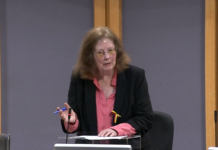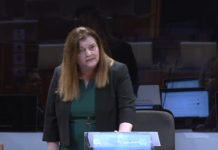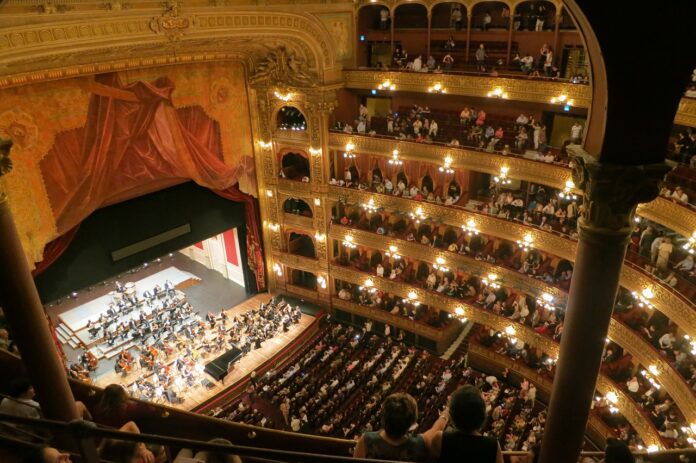- A quarter of music venues (27%) are concerned they may need to close down[1], as more than a third (35%) of business expenses go towards energy bills[2]
- Many are running at half capacity (50%)[3], and have resorted to production cost cutting (17%)[4] and raising ticket prices by up to 25%[5]
- Two in five (39%) have also found that customers are purchasing less expensive seats and buying fewer refreshments[6]
- Three in five (60%) music venues say that energy bills are their top concern for the next year, above inflation rates and staff costs[7]
- Uswitch for Business energy expert, Jack Arthur advises businesses to check the contract they are on and to review energy usage across all organisational levels.
Energy bills are taking the centre stage of concern for live performance venues, as energy bills make up more than a third of overall business costs, according to Uswitch for Business, the business energy comparison and switching service.[2]
Performance venues are widely recognised as energy-intensive spaces, and the new research of UK music venues, concert halls and theatres shows over a quarter (27%) are concerned about potential closure due to rising costs.[1]
Air conditioning, heating, as well as extensive sound and lighting systems required to create immersive experiences for audiences are all adding towards total energy expenditure costs, with venues needing between 6 -1,000 kw to power low level concerts to major artist events[8].
Venues of all sizes report running at half capacity (50%) on average[3]. More than one in four (26%) sold fewer tickets this year, compared to last year. [9]
Consumers attending live performances are also more inclined to choose less expensive seats (39%) or buy fewer refreshments (39%)[6].
The show must go on: responding to the high energy costs
One in six (15%) venues report having to increase ticket prices[4], at an average of 25% per ticket to cover increased expenditure[5]. In addition, more than a quarter (27%) have also increased the prices of refreshments.[4]
Venues are also looking at new ways to reduce their energy output to directly tackle the problem. Training staff in energy efficiency measures (45%), switching to more energy efficient or LED lighting for both onstage and offstage (41%), and turning off, down or restricting air conditioning and heating (36%) are just some of the tactics. [4]
Nearly one in five (19%) are also choosing to only open their doors during peak times of the week, and 17% are using less energy intensive movable staging and production measures.[4]
But as energy prices continue to oscillate at high levels, three in five (60%) businesses are citing bills as their top concern for the next year, followed by inflation rates (41%) and staff costs (30%).[7]
Venues say they may have to make considerable changes if business costs were to increase further, especially as more than one in three (34%) state their business margins are now lower than before the cost of living crisis.[6]
Two in five (40%) fear they may have to make staff redundant to reduce costs, and one in three (35%) worry they may not be able to pay their energy bills on time.[1] Overall, 32% feel anxious about the future of the industry.[10]
Jack Arthur, energy expert at Uswitch for Business comments: “Live performances are central not only to the UK’s culture and entertainment sector, but also to the UK economy.
“While the sector has seen some recovery since the pandemic’s impact, the cost of energy has added new additional challenges.
“With higher utility costs taking the stage, venues need to be meticulous about how energy usage is being considered at all levels of their organisation – from the stage floor to sound production.
“Investing in more energy efficient appliances where possible may help to bring costs down, and prevent the final curtain for many.
“Music venues should also make sure they’re aware of their energy contract terms and end date, so they can shop around for the best rates at the time of renewal. Getting expert advice where needed and speaking to someone could help many businesses make significant savings.”
Elspeth McBain, Chief Executive of Lighthouse Poole Centre for Arts says:
“Energy costs have been a major challenge to our venue, and indeed all venues in the last year, just as we were beginning to recover and get back on our feet following the devastating effect of the pandemic on culture and hospitality.
“In 2023 our electricity bill alone will increase by 200% and we are doing everything we can to meet this cost. However, this is on top of the significant increase in the cost of living which has increased our costs in all areas of the business and has also meant our audiences have less leisure spend available, restricting the number of times they can attend cultural events.
“Together, these factors have made it a testing time for organisations like ours and theatregoers alike. I am desperate for energy and living costs to come down so that we can keep bringing top class artists and productions to Poole, support local talent development, provide opportunities for cultural participation, and ensure that culture within our region continues to play a vital part in our community.”
Mark Davyd, CEO & Founder of the Music Venue Trust says:
“We have seen an incredible explosion in energy prices right across the grassroots music venue sector in the last 12 months.
“The current situation is really on a knife edge, with venues essentially clinging on to the end of existing fixed term contracts and any new tariff effectively immediately creating a venue under threat of permanent closure.
“We desperately need some action from Ofcom and the Government to make the energy market work for music.”
Help keep news FREE for our readers
Supporting your local community newspaper/online news outlet is crucial now more than ever. If you believe in independent journalism, then consider making a valuable contribution by making a one-time or monthly donation. We operate in rural areas where providing unbiased news can be challenging. Read More About Supporting The West Wales Chronicle





















